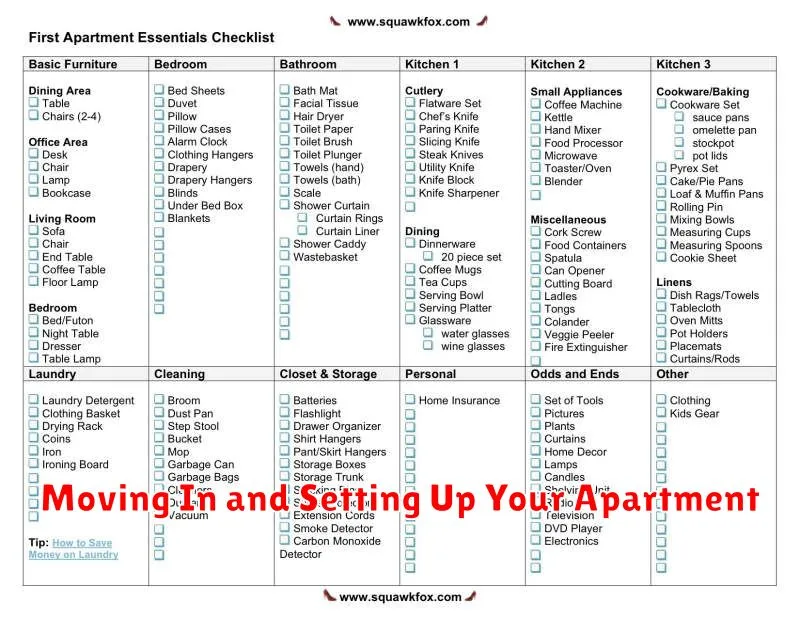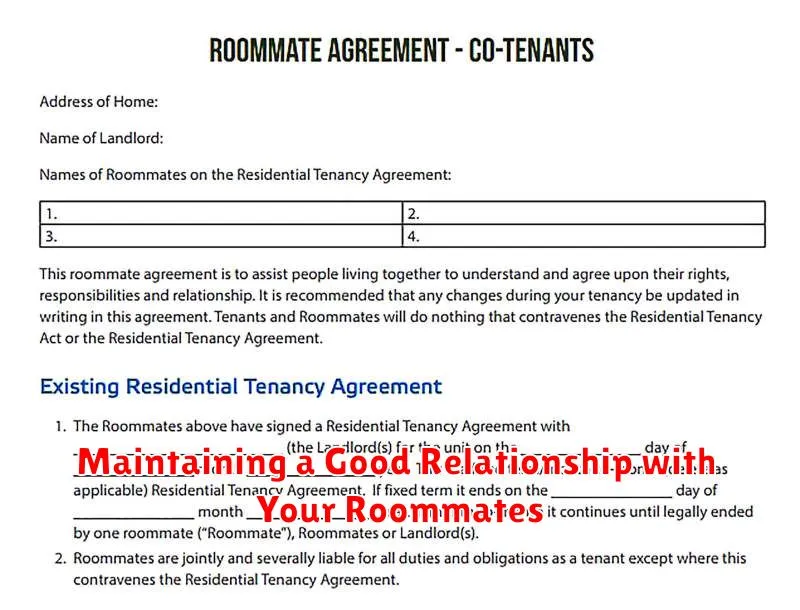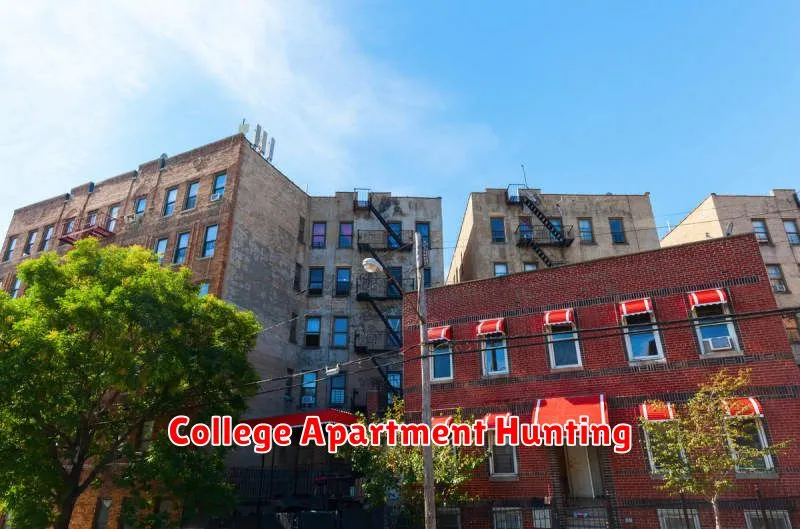Are you a college student looking for the perfect apartment to rent? Finding the right place to live can be a daunting task, especially when you’re balancing studies, social life, and a tight budget. This comprehensive apartment rental guide is here to help you navigate the process, from finding the ideal apartment to securing the best possible deal. We’ll cover everything from budgeting and location to lease agreements and rental scams, providing you with the knowledge and tools you need to find the perfect student housing solution.
Setting a Realistic Budget for Your Apartment
Finding an affordable apartment can be stressful, especially when you’re on a tight budget as a college student. Before you start your search, it’s essential to set a realistic budget. This will help you narrow down your options and ensure you’re not overspending. A realistic budget takes into account various expenses, including rent, utilities, groceries, transportation, and entertainment.
Start by considering your income. Determine your monthly income and factor in any potential deductions, such as taxes or loan payments. This will give you a clear picture of your available funds. Once you have a solid understanding of your income, it’s time to list out your essential expenses. Rent will be your biggest monthly cost, so start by allocating a portion of your income to that.
Remember to consider additional costs like utilities (electricity, water, gas), internet, and renter’s insurance. It’s also wise to budget for groceries, transportation, and other necessary expenses.
While it’s tempting to spend money on entertainment and social outings, it’s crucial to balance these expenses with your essential needs. Create a budget that allows you to enjoy your college experience without breaking the bank. By creating a realistic budget, you can find an apartment that fits your financial situation and allows you to focus on your studies without worrying about money.
Finding Apartments Near Campus or with Convenient Transportation
One of the most crucial aspects of finding an apartment as a college student is convenience. You want an apartment that’s easily accessible to your classes, campus events, and other activities. This means considering apartments near campus or with convenient transportation options.
Living close to campus offers numerous benefits, including:
- Reduced commute time, allowing you to save time and energy for your studies or social life.
- Easy access to campus resources, such as libraries, study spaces, and recreational facilities.
- Walking distance to classes, the dining hall, and student organizations.
However, apartments near campus can be more expensive. If you’re on a budget, consider finding an apartment within a reasonable distance from campus that’s served by public transportation.
Before signing a lease, make sure to research the availability and reliability of public transportation options, including:
- Bus routes: Check the frequency and hours of operation to ensure it meets your needs.
- Train or subway lines: If your city offers these services, consider their proximity to your apartment and campus.
- Ride-sharing services: Consider the availability and cost of ride-sharing services in your area.
Additionally, evaluate the safety and convenience of walking or biking to and from the apartment. Consider factors like street lighting, pedestrian walkways, and traffic volume.
When choosing an apartment, prioritize convenience without compromising your safety and budget. By finding an apartment near campus or with convenient transportation options, you can make your college life more manageable and enjoyable.
Choosing the Right Type of Apartment (Studio, Shared, etc.)
Choosing the right type of apartment is a key step in your college housing journey. The type of apartment you choose will depend on your individual needs, budget, and preferences. There are several common apartment types to consider:
Studio apartments are the smallest option, offering a single room that serves as both living space and bedroom. These are great for students who prioritize privacy and want to keep their living space minimal. They are also typically the most affordable option. However, studios can feel cramped and might not be suitable for those who need dedicated study or work areas.
One-bedroom apartments offer a separate bedroom and living space. They provide more room for students who value privacy and need a designated area for studying or working. While more spacious than studios, one-bedroom apartments tend to be more expensive.
Shared apartments, also known as roommates, offer the benefit of lower costs. You can share a two or three-bedroom apartment with other students, dividing the rent and utilities. This is a good option for students who are sociable and comfortable living with others. However, it’s crucial to find compatible roommates and communicate effectively to avoid conflicts.
Other options include apartments with lofts, offering a raised sleeping area for a more open living space. Some apartments may also offer amenities like laundry facilities, parking, or a community room.
Ultimately, the best type of apartment for you depends on your individual needs and priorities. Consider your budget, lifestyle, and how much privacy you value. Before making a decision, visit potential apartments and think about how they would suit your daily life as a college student.
Searching for Apartments Online and Offline
Finding a suitable apartment can be an exciting and daunting task, especially for college students entering a new environment. With countless options available, both online and offline, it’s crucial to approach the search strategically. This guide will provide you with valuable insights into navigating the apartment rental market and finding the perfect place to call home.
Online resources offer a vast and convenient way to explore apartments. Websites like Craigslist, Zillow, Apartments.com, and Trulia provide extensive listings, often accompanied by photos, virtual tours, and detailed descriptions. These platforms allow you to filter your search based on location, budget, amenities, and other criteria. You can also utilize social media groups dedicated to apartment hunting or student housing in your area.
Complementing online searches, offline methods can provide a more personalized approach. Visiting local real estate agencies allows you to discuss your needs and preferences with experienced professionals. They can help you narrow down your options and provide insights into the local market. Additionally, don’t underestimate the power of word-of-mouth. Ask friends, classmates, and campus staff for recommendations or insights into potential rental properties they’ve heard about.
Remember to be cautious and verify information obtained from both online and offline sources. Always inspect the property in person, ensure its safety, and review lease terms carefully. It’s essential to prioritize your budget and be prepared to compromise if necessary. Take your time, gather information from multiple sources, and don’t hesitate to ask questions. With a well-structured search strategy and a proactive approach, you’ll find the perfect apartment to make your college experience even more enriching.
Understanding Lease Terms and Responsibilities
Before you sign on the dotted line, make sure you understand the terms of your lease agreement. This is a legally binding document that outlines your rights and responsibilities as a tenant. It’s essential to read through it carefully and ask questions about anything you don’t understand.
Here are some key lease terms you should be aware of:
- Lease Period: The duration of your rental agreement.
- Rent Amount: The monthly payment you’re obligated to pay.
- Security Deposit: A refundable deposit that protects the landlord against damages.
- Late Fee: A penalty charged for rent payments received after the due date.
- Pet Policy: Restrictions on pets, including breed, size, and number.
- Parking: Rules regarding parking, including assigned spaces and fees.
- Utilities: Specifies which utilities are included in rent and which are your responsibility.
- Noise Restrictions: Rules regarding noise levels and hours of quiet.
- Termination Clause: Conditions under which you can break the lease early, such as a transfer of studies or military deployment.
Beyond these terms, your lease may also include specific responsibilities as a tenant, such as:
- Paying rent on time.
- Maintaining the apartment in a clean and habitable condition.
- Reporting any maintenance issues promptly.
- Abiding by the community’s rules and regulations.
Understanding your lease terms and responsibilities will help you avoid future conflicts and ensure a smooth rental experience.
Roommate Selection and Agreements
Finding the right roommate can make or break your apartment living experience. Take your time and consider these factors:
- Personality and Lifestyle: Are you both introverted or extroverted? Do you have similar sleep schedules and study habits?
- Cleanliness and Organization: Discuss your expectations for keeping the apartment clean and organized.
- Budget and Finances: Be transparent about your spending habits and agree on how you’ll split expenses.
- Communication: Open and honest communication is essential. Set clear expectations about how you’ll handle disagreements and address issues.
Once you’ve found potential roommates, consider creating a roommate agreement. This document outlines:
- Responsibilities: Clearly define who is responsible for which chores and common areas.
- Guest Policy: Set boundaries about overnight guests and noise levels.
- Pet Policy: If you’re planning on having pets, outline responsibilities and any restrictions.
- Termination Clause: Include a clear process for ending the lease agreement early.
A written roommate agreement helps prevent misunderstandings and ensures a smoother living experience. Remember, finding the right roommate is just as important as finding the right apartment.
Checking Apartment Amenities and Safety Features
When searching for an apartment, it’s crucial to consider the available amenities and safety features. These factors significantly impact your overall living experience and security. Here are some key aspects to evaluate:
Amenities:
- Laundry facilities: In-unit laundry is a major convenience, but shared laundry rooms should be readily accessible and well-maintained. Check for the number of machines, their efficiency, and any potential fees associated with their use.
- Parking: Secured parking spaces, especially in urban areas, are essential for vehicle safety. Consider the type of parking (garage, driveway, street parking) and any associated fees or permits.
- Fitness center: If you’re fitness-oriented, a well-equipped fitness center can be a valuable amenity. Look for modern equipment, a spacious layout, and reasonable hours of operation.
- Community spaces: Common areas like lounges, study rooms, or courtyards offer opportunities for socialization and relaxation. Evaluate their size, design, and accessibility.
Safety Features:
- Security system: Look for buildings equipped with security cameras, keyless entry, intercom systems, and security personnel. These features enhance safety and deter criminal activity.
- Fire safety: Ensure the building has fire alarms, sprinklers, and fire extinguishers, and familiarize yourself with the fire escape routes.
- Lighting: Adequate outdoor lighting around the building and parking areas is essential for visibility and safety, especially at night.
By carefully evaluating amenities and safety features, you can choose an apartment that meets your needs and provides a comfortable and secure living environment.
Negotiating Rent and Lease Terms
Negotiating rent and lease terms can feel daunting, especially when you’re a college student looking for your first apartment. However, it’s often possible to get a better deal if you know what to ask for and how to approach the landlord.
First, make sure you understand the standard terms in the lease. This includes the rent amount, the lease duration, the security deposit, and any pet policies. You should also be aware of your rights as a tenant under your state’s landlord-tenant laws.
Once you have a good understanding of the standard terms, you can start negotiating. Here are some common areas where you might be able to get a better deal:
- Rent: If you’re willing to sign a longer lease or pay a larger security deposit, you might be able to negotiate a lower monthly rent. It’s also worth asking if the landlord would be willing to offer a discount for early payment or for paying the rent annually.
- Security Deposit: Some landlords are willing to reduce the security deposit if you have good credit or a strong rental history. This is particularly true if you’re willing to sign a longer lease.
- Lease Duration: While a year-long lease is typical, you might be able to negotiate a shorter lease if you’re only staying in the apartment for a few months. This is a good option for students who aren’t sure how long they’ll be in town.
- Pet Policy: If you have a pet, you might be able to negotiate a lower pet deposit or waive the pet rent altogether. Be prepared to show the landlord that you’re a responsible pet owner.
- Utilities: Some landlords are willing to include utilities in the rent price. If this is possible, it can save you money on your monthly expenses.
- Lease Break Clause: This clause allows you to break your lease early for specific reasons, such as transferring schools. Negotiate a clause with reasonable conditions and fees.
When negotiating, be polite and respectful. Explain your situation clearly and be prepared to offer something in return for any concessions you request. Don’t be afraid to walk away if you’re not satisfied with the terms. It’s better to find an apartment that meets your needs than to settle for something that doesn’t.
Remember, negotiating rent and lease terms is about finding a balance that benefits both you and the landlord. By being informed and assertive, you can increase your chances of getting a good deal on your next apartment.
Moving In and Setting Up Your Apartment

The moment you’ve all been waiting for has finally arrived: moving into your new apartment! While exciting, it’s also important to approach this with a plan. Before you start unpacking, take a deep breath and walk through your new space. Get a feel for the layout, lighting, and overall vibe. This will help you decide where you want to place your furniture and how you want to decorate.
Make a list of essential items you need to set up your apartment, prioritizing things like bedding, towels, cleaning supplies, and kitchen basics. Consider purchasing items you don’t have already, like lamps, rugs, and curtains. Having a comfortable and functional space will make your transition into college life smoother.
Don’t forget to test everything! Turn on the lights, check the water pressure, and make sure all appliances work properly. This is the best time to report any issues you find to your landlord before you move in fully. Remember, your comfort and safety should be your top priority.
Once everything is set up, take a moment to relax and enjoy your new space. It’s your personal haven, so make it feel like home. Add some personality with decorations, posters, and photos. You can even organize a housewarming party with your friends to celebrate this new chapter in your life.
Dealing with Landlord Issues
Landlord issues can be a common frustration for college students, but don’t despair! Here’s a guide on how to navigate them effectively:
Communication is Key: Always try to resolve issues through clear and respectful communication. Start with a friendly email or phone call outlining the problem. Keep detailed records of all interactions, including dates, times, and the content of conversations.
Know Your Rights: Familiarize yourself with your local tenant laws. These laws define your rights and responsibilities as a renter, and they can be valuable in resolving disputes. Your university’s housing office may also have resources available to help you understand your rights.
Document Everything: Take photos and videos of any damage or maintenance issues. This documentation can be essential if you need to make a formal complaint or seek legal recourse.
Seek Mediation: If direct communication isn’t working, consider reaching out to your university’s housing office or a local tenant advocacy group for mediation assistance. They can help facilitate a conversation between you and your landlord.
Escalate if Necessary: If all else fails, you may need to take formal action. This could involve filing a complaint with your city’s housing department or consulting with a lawyer. However, this should be a last resort.
Maintaining a Good Relationship with Your Roommates

Living with roommates is an integral part of the college experience. It can be a rewarding and fun experience, but it also requires effort and communication to foster a healthy and harmonious living environment. By following these tips, you can maintain a good relationship with your roommates and make the most of your shared living space.
Communication is Key: Open and honest communication is the foundation of any successful roommate relationship. Be upfront about your expectations, needs, and preferences. Discuss schedules, cleanliness, noise levels, and other important factors that affect your shared living space. Regularly check in with your roommates to address any issues or concerns before they escalate.
Respect Boundaries: Everyone needs their own space and time. Respect each other’s personal boundaries. Knock before entering someone’s room, be mindful of noise levels during study or sleep hours, and avoid borrowing belongings without permission. Understanding and respecting each other’s need for privacy fosters a sense of trust and avoids conflicts.
Be Considerate: Small gestures of kindness and consideration go a long way in maintaining a positive roommate dynamic. Offer to help with chores, share snacks or meals, and be supportive of each other’s academic and personal goals. Being considerate shows that you care about your roommates’ well-being and strengthens the bond between you.
Resolve Conflicts Effectively: Conflicts are inevitable in any shared living situation. When disagreements arise, approach them with a calm and respectful demeanor. Listen actively to each other’s perspectives, find common ground, and aim for a solution that works for everyone. If you are unable to resolve a conflict on your own, seek the help of a mediator or resident advisor.
Maintaining a good relationship with your roommates is essential for creating a positive and comfortable living environment. By communicating openly, respecting boundaries, being considerate, and resolving conflicts effectively, you can foster a sense of community and friendship that enhances your college experience.
Saving Money on Utilities and Other Expenses

Living on a budget can be tough, especially when you’re a college student. Your apartment can quickly become a financial black hole if you’re not careful. There are many ways to save money on utilities and other expenses, so you can focus on your studies and have more money for fun activities.
First, consider your utility usage. Do you really need the AC on all the time? Are you leaving lights on when you’re not in the room? Making small changes can save you money in the long run. Turning off lights and appliances when you’re not using them, and using fans instead of air conditioning can make a big difference.
Next, look for ways to save on your grocery bill. There are many ways to do this, such as buying in bulk, taking advantage of coupons, and cooking at home instead of eating out. Also, try to plan your meals ahead of time to avoid impulse purchases at the grocery store. And, when it comes to groceries, be sure to make the most of your student discounts – some grocery stores have them!
Finally, don’t forget about other expenses. You can save money on entertainment by taking advantage of free events and activities in your city. You can also save money on transportation by using public transportation or walking or biking whenever possible. Remember, every little bit counts!
Understanding Tenant Rights and Responsibilities
Navigating the world of apartment rentals can be overwhelming, especially for college students. It’s crucial to understand your rights and responsibilities as a tenant to ensure a smooth and positive living experience. This knowledge will empower you to advocate for yourself and maintain a healthy landlord-tenant relationship.
Tenant Rights are legal protections granted to renters. They cover aspects like:
- Privacy: Your landlord cannot enter your apartment without reasonable notice and a valid reason, such as an emergency or for routine maintenance.
- Safe and Habitability: You have the right to live in a safe and habitable environment, free from major defects like leaks, pests, or lack of heat.
- Lease Agreement: The lease agreement should clearly outline the terms of your tenancy, including rent amount, lease duration, and allowed use of the property.
However, with rights come Responsibilities. As a tenant, you’re obligated to:
- Pay Rent on Time: Punctual rent payment is crucial, and late payments can lead to penalties or eviction.
- Respect Property: Maintain the apartment in a clean and responsible manner, avoiding damage or excessive wear and tear.
- Adhere to Lease Terms: Follow the rules outlined in the lease agreement, such as quiet hours or pet restrictions.
By understanding both your rights and responsibilities, you can navigate the rental process confidently and avoid potential conflicts with your landlord. It’s always wise to review your lease agreement thoroughly, ask questions when in doubt, and maintain open communication with your landlord.
Preparing for Move-Out and Security Deposit Return

As your lease comes to an end, it’s crucial to prepare for move-out to ensure you get your security deposit back. Follow these tips for a smooth transition and a successful return of your deposit:
Review Your Lease Agreement: Before you start packing, carefully review your lease agreement. It outlines the specific move-out requirements, including cleaning standards, and any additional fees that may apply.
Schedule a Walk-Through: Contact your landlord or property manager to schedule a walk-through inspection before you move out. This allows you to address any issues and ensure you are meeting the lease terms.
Thorough Cleaning: Clean the apartment thoroughly, paying attention to areas that are often overlooked, such as the refrigerator, oven, and behind furniture. Remove all trash and dispose of it properly.
Return All Keys: Make sure you return all keys to the landlord, including mailbox keys, garage keys, and any other keys you may have received.
Document Everything: Take photos and videos of the apartment before and after you move out. This will help you prove that you met the move-out requirements and protect yourself if there are any disputes.
Request Your Security Deposit Return: After you move out, contact your landlord or property manager and request the return of your security deposit. They should provide you with an itemized list of any deductions and a refund within the timeframe specified in your lease agreement.
Dispute Deductions: If you disagree with any deductions made to your security deposit, gather your documentation and submit a written request to dispute the charges. This is a common process and usually requires you to submit evidence to support your claim.
Preparing for move-out and ensuring you receive your security deposit back can be stressful. By following these tips, you can minimize any potential issues and ensure a smooth transition from your college apartment.

